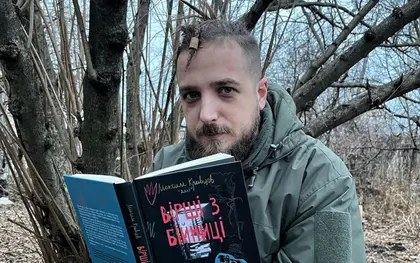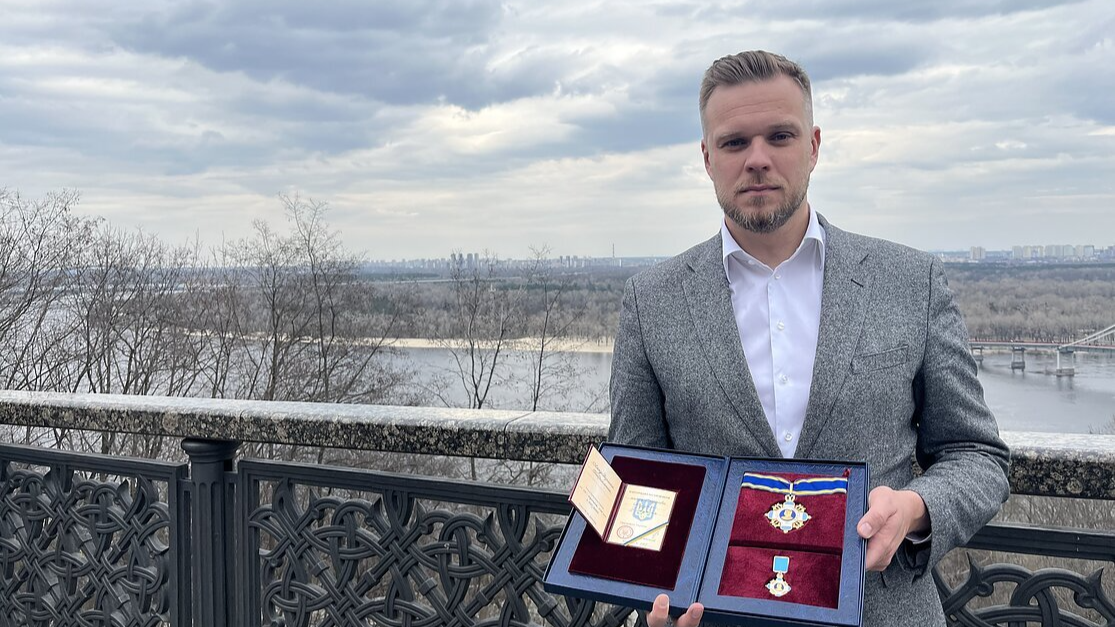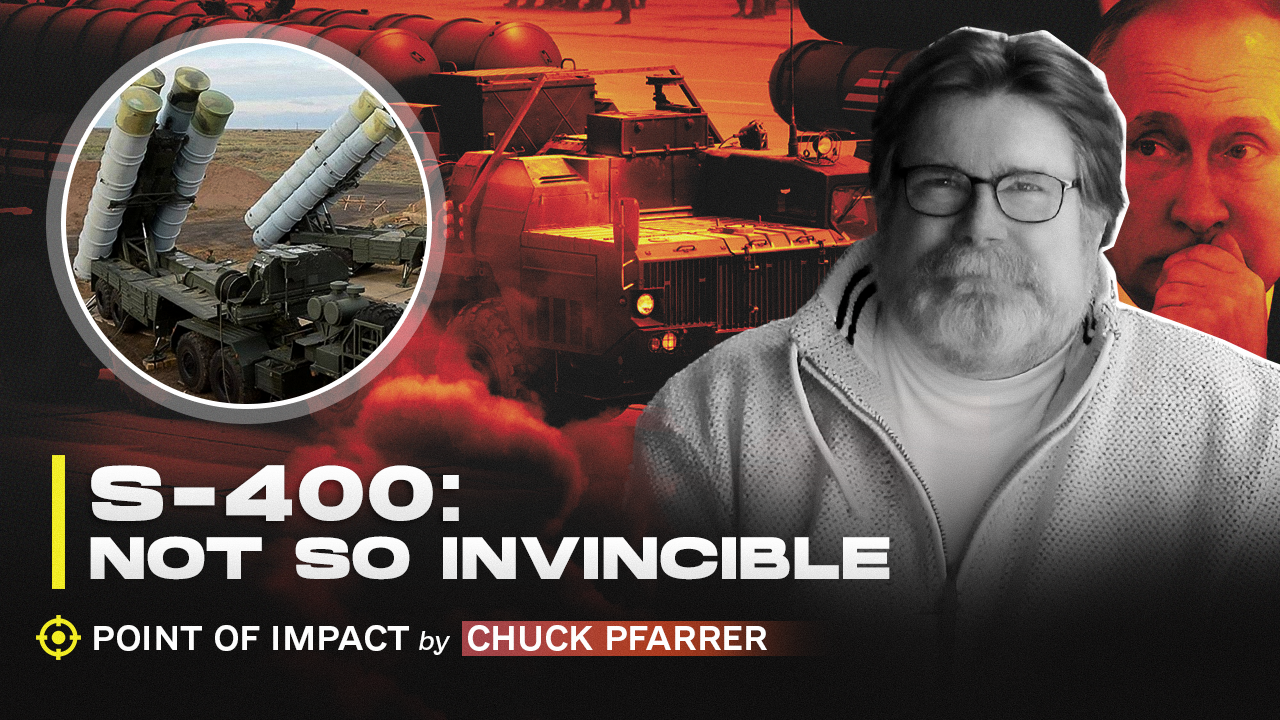Maksym Kryvtsov, a poet and soldier of the Armed Forces of Ukraine, was killed on Jan. 7 while fighting in the Kupyansk area of the Kharkiv region at the age of 33. Maksym’s unfinished novel, his unrealized dreams, and his voice, now silenced, epitomize the profound loss Ukraine and the world are facing.
A participant in the Revolution of Dignity and a volunteer since 2014, Maksym’s life was a testament to the spirit of the Ukrainian people. His book, “Virshi z biinytsi” (Poems From the Battlefield), has been hailed as one of the best Ukrainian poetry collections of 2023. It stands as a stark reminder that in this terrible war, Ukraine is losing its the best. His memory is a blessed one, and his story, a microcosm of a nation’s sacrifice.
When I revisited Ukraine in 2022, the profound contrast with my earlier visit in 2013 became strikingly clear. In hindsight, I realized that my understanding back then, even while acting in a movie about the Holodomor, was clouded by Russian propaganda. At the time, I had perceived Ukrainian identity through a narrow and misconstrued lens, unknowingly viewing it as an extension of Russian culture. This skewed perception significantly undermined my appreciation of Ukraine’s unique and vibrant cultural identity. It was only upon my return that this fog of misconception lifted, revealing the rich, distinct tapestry of Ukrainian heritage and resilience that I had previously failed to see.

Ukrainian Drone Reportedly Strikes Russian-Seized Ship in Crimea
The Ukraine I encountered was a nation transformed, where the bleak individualism I once observed had evolved into a collective strength and humility. In the face of adversity, a unified spirit of resilience and solidarity had emerged, reshaping the country’s fabric.
In these places, art isn’t just something you watch – it’s raw, real, life itself, showing the tough, unbreakable spirit of the Ukrainians.
Amidst this backdrop, the role of art has transcended mere expression; it has become a lifeline. Following the bombings that plunged much of Ukraine into darkness, a poignant scene unfolded: audiences, undeterred by the blackouts, were seen navigating through unlit streets, their paths illuminated only by flashlights. They were drawn to theaters – now dark and cold sanctuaries – where, under the flicker of candlelight, their favorite plays came to life. In these places, art isn’t just something you watch – it’s raw, real, life itself, showing the tough, unbreakable spirit of the Ukrainians.
This period has also witnessed the unusual morphing of artists into soldiers. Reminiscent of the Bushido tradition in Japan, where warriors accept their demise for a greater good. Ukrainian artists are experiencing a deep, fundamental metamorphosis. How do people trained for empathy engage in the dehumanizing process of war? How can one kill when they don’t necessarily harbor the luxury of hatred?
These were my first questions. I soon discovered the answer. First, even artists can feel hatred, especially in the face of indiscriminate civilian war crimes committed by Russia. But for the ones whose hearts can’t bear hatred, they are guided by a much more powerful notion, one we have forgotten in the West: duty.
The painter, actor, and writer are repurposing their creative energies in the service of war. Their talents, honed in studios and theaters, find unexpected applications in the trenches. Yet this shift comes with a heavy cost.
The broad expanse of artistic imagination gives way to the narrow focus of survival – a focus that is as necessary as it is tragic.
Many artists, in embracing the role of the warrior, find themselves disconnecting from their creative selves. To survive the horrors of war, they allow their world to become smaller and more immediate. The broad expanse of artistic imagination gives way to the narrow focus of survival – a focus that is as necessary as it is tragic. For some, creativity becomes a distant echo, overshadowed by the immediacy of their martial responsibilities.
This poignant dichotomy raises a critical question: Are we witnessing the emergence of an artistically vibrant era born from adversity, or the fading of a generation whose potential may remain unfulfilled? The unfolding story is complex, painted in shades of inspiration and sorrow.
As the global community watches, we must not only support Ukraine’s fight for freedom but also amplify the voices of its artists. Should these luminaries fall in defense of their nation, it becomes our collective responsibility to ensure their art, their vision, their sacrifices are not lost to time. Their stories, their relentless spirit, are not just Ukraine’s heritage – they are a beacon for us all.
In this narrative of Ukraine, we find a tapestry woven with threads of deep inspiration and profound tragedy. It is a narrative that transcends the battlefield, reminding us of the enduring power of art and the resilience of the human spirit. It is not solely Ukraine’s story – it is a story that belongs to the world.
The views expressed in this opinion article are the author’s and not necessarily those of Kyiv Post.
You can also highlight the text and press Ctrl + Enter









